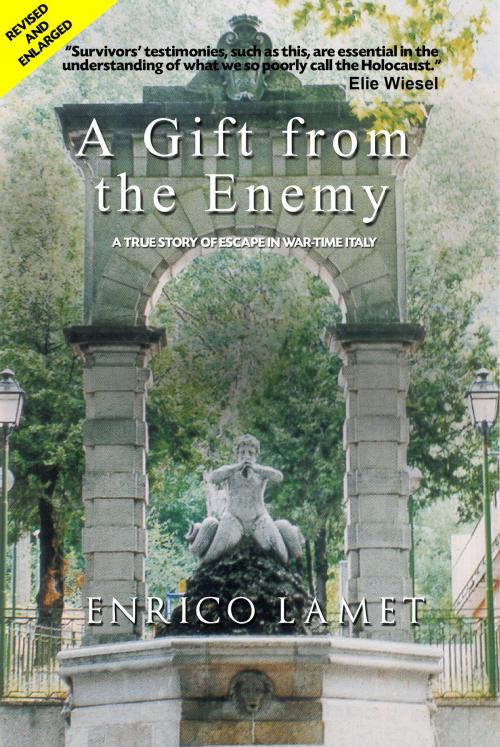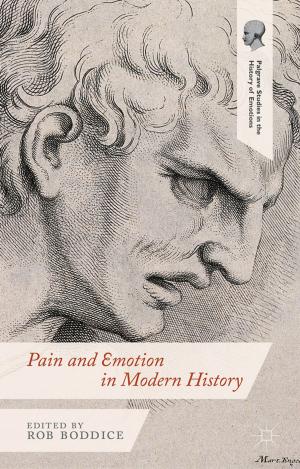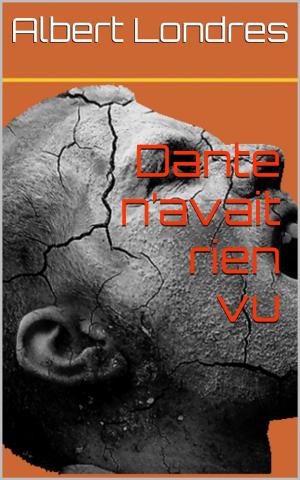| Author: | Enrico Lamet | ISBN: | 9781301642816 |
| Publisher: | Enrico Lamet | Publication: | November 12, 2013 |
| Imprint: | Smashwords Edition | Language: | English |
| Author: | Enrico Lamet |
| ISBN: | 9781301642816 |
| Publisher: | Enrico Lamet |
| Publication: | November 12, 2013 |
| Imprint: | Smashwords Edition |
| Language: | English |
By Enrico Lamet an 81-year-old retiree living in Florida. How he got there is an amazing tale. Born in Vienna as Erich Lifshütz, an upper middle class Jew with Polish roots, he left Austria with his parents in 1938, at the age of 8. As Jews, they were not permitted to take much money out of the country as they shuffled across France and came to settle in Italy, as the Nazis marched across borders. You would expect such an account to be filled with the horrors of war. But it is not.
Lamet is a natural storyteller. When he identifies himself as al confino, he is referring to the system of enforced exile, or confinement of untrustworthy elements, which was put in place by Italian dictator Benito Mussolini after allying with Hitler. The author’s father made the fateful choice of returning to Poland to see family, leaving his wife and son on their own for the duration of the war. The author and his mother, whom he calls “Mutti,” are affectionate, yet she is as willful and worry-prone as he is active and adventure-prone.
They know as much freedom as one can, living al confino, in the backward, bug-infested mountain village of Ospedaletto, outside Naples. The others in their cohort of undesirables - which include a former Oxford professor, Eastern Europeans, and Italians - must check in with the police on a regular basis. But the local enforcers, it turns out, have no interest in strictly monitoring them or in bowing to Mussolini. Here are your orders, the man in charge recites, and then in an aside: “I am embarrassed to have to read this to you.”
What makes this book so animated are the cast of characters as they survive in the mind of Erich (Enrico, in his Italian incarnation). A shoemaker, young priests, teachers, neighbors - they are his extended family in times of trial and confusion, as the outsiders adapt to a colorless townscape of steep, dusty, narrow streets, a place without running water. Money is scarce, food not always plentiful, and when winter blows in, young Enrico “combed the woods for the scraps left behind by some careless woodsman” to keep the fire going. He lives by his wits.
“Mutti” falls in love with a Sicilian, Pietro, who becomes the boy’s stepfather. Seeing the three-way relationship develop through Enrico’s eyes is deeply real and touching. What might have turned out bad becomes a lesson in how human beings sometimes find happiness despite overwhelming odds. Separations are sutured back together through the poetry Pietro conveys. To the multilingual Enrico he once quoted at length from Dante’s Inferno, in Italian. The boy was struck that he could retain so much literature in his head. “All beautiful things are worth remembering,” Pietro explains. A certain radiance comes from Pietro that makes his generosity all the more enduring.
During their two and a half years in Ospedaletto, this patchwork family could only assume that Enrico’s father was dead. But before any news from Poland arrives, the war closes in on them. German troops ominously enter the town, and when one of the soldiers tries to communicate with the locals, Enrico, disobeying his mother’s warnings, blurts out something in German. Overcoming moments of palpitation, he and Gerhard became fast friends. It seems that Enrico (now “Erich” again) reminds the soldier of his 11-year-old back in Germany. Away from his men, he whispers to the lad: “I know you are Jewish, but you have nothing to fear.”
Not very long after this episode, the Americans liberate the town, and the confinati are finally allowed to leave. The author rides to Naples in an American jeep. Resettled there, he receives a high school and college education. Word from Poland arrives, past and present merge for the teenager on a train platform, and the fears he had contended with through a wandering childhood gradually melt away.
In 1950, he reaches America, where this tale of running, hiding, and surviving ends with a thoroughly uplifting epilogue.
By Enrico Lamet an 81-year-old retiree living in Florida. How he got there is an amazing tale. Born in Vienna as Erich Lifshütz, an upper middle class Jew with Polish roots, he left Austria with his parents in 1938, at the age of 8. As Jews, they were not permitted to take much money out of the country as they shuffled across France and came to settle in Italy, as the Nazis marched across borders. You would expect such an account to be filled with the horrors of war. But it is not.
Lamet is a natural storyteller. When he identifies himself as al confino, he is referring to the system of enforced exile, or confinement of untrustworthy elements, which was put in place by Italian dictator Benito Mussolini after allying with Hitler. The author’s father made the fateful choice of returning to Poland to see family, leaving his wife and son on their own for the duration of the war. The author and his mother, whom he calls “Mutti,” are affectionate, yet she is as willful and worry-prone as he is active and adventure-prone.
They know as much freedom as one can, living al confino, in the backward, bug-infested mountain village of Ospedaletto, outside Naples. The others in their cohort of undesirables - which include a former Oxford professor, Eastern Europeans, and Italians - must check in with the police on a regular basis. But the local enforcers, it turns out, have no interest in strictly monitoring them or in bowing to Mussolini. Here are your orders, the man in charge recites, and then in an aside: “I am embarrassed to have to read this to you.”
What makes this book so animated are the cast of characters as they survive in the mind of Erich (Enrico, in his Italian incarnation). A shoemaker, young priests, teachers, neighbors - they are his extended family in times of trial and confusion, as the outsiders adapt to a colorless townscape of steep, dusty, narrow streets, a place without running water. Money is scarce, food not always plentiful, and when winter blows in, young Enrico “combed the woods for the scraps left behind by some careless woodsman” to keep the fire going. He lives by his wits.
“Mutti” falls in love with a Sicilian, Pietro, who becomes the boy’s stepfather. Seeing the three-way relationship develop through Enrico’s eyes is deeply real and touching. What might have turned out bad becomes a lesson in how human beings sometimes find happiness despite overwhelming odds. Separations are sutured back together through the poetry Pietro conveys. To the multilingual Enrico he once quoted at length from Dante’s Inferno, in Italian. The boy was struck that he could retain so much literature in his head. “All beautiful things are worth remembering,” Pietro explains. A certain radiance comes from Pietro that makes his generosity all the more enduring.
During their two and a half years in Ospedaletto, this patchwork family could only assume that Enrico’s father was dead. But before any news from Poland arrives, the war closes in on them. German troops ominously enter the town, and when one of the soldiers tries to communicate with the locals, Enrico, disobeying his mother’s warnings, blurts out something in German. Overcoming moments of palpitation, he and Gerhard became fast friends. It seems that Enrico (now “Erich” again) reminds the soldier of his 11-year-old back in Germany. Away from his men, he whispers to the lad: “I know you are Jewish, but you have nothing to fear.”
Not very long after this episode, the Americans liberate the town, and the confinati are finally allowed to leave. The author rides to Naples in an American jeep. Resettled there, he receives a high school and college education. Word from Poland arrives, past and present merge for the teenager on a train platform, and the fears he had contended with through a wandering childhood gradually melt away.
In 1950, he reaches America, where this tale of running, hiding, and surviving ends with a thoroughly uplifting epilogue.















